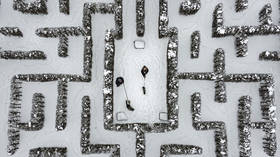Winter blackouts unlikely, but possible – Scholz
The German chancellor said his government has done what it can to prevent power shortages
German Chancellor Olaf Scholz says he doesn’t expect power blackouts this winter, despite concerns raised by the opposition, but has refused to rule out such a scenario altogether.
“We have done everything to ensure that it does not come to that,” Scholz said in an interview with ZDF on Sunday, commenting on the possibility that German consumers could face power cuts.
The head of the German government was responding to a warning by Friedrich Merz, the leader of the Christian Democratic Union party (CDU), which he issued in an interview with Bild on Saturday. Merz accused the ruling coalition of phasing out nuclear power for ideological reasons despite the ongoing energy crisis in the EU, and said Germany is at risk of “blackouts early next year” as a result.
Germany has three nuclear power plants in operation, which are scheduled to go offline at the end of the year. The government ruled out the postponement of the shutdown after a review in March. Merz called for the decision to be reversed and said the facilities should continue to supply electricity to the power grid.
Scholz defended his government’s policies, which have included energy-saving measures, efforts to fill up natural gas reserves, and the reactivation of coal-fired power plants. He said these measures should be sufficient to see the country through winter, adding that Germany would have more capacity for shipments of liquified natural gas within months, alleviating shortage concerns.
Berlin has faced the prospect of an energy crunch since it announced its intention to decouple the country’s economy from cheap Russian supplies. The plan was to eliminate Russian fossil fuels gradually, with natural gas continuing in the energy mix for a couple of years. But the flow from Russia was curbed by other factors.
Ukraine refused to pump Russian fuel through one of the routes going through its territory after Russia captured part of it. And Russian gas giant Gazprom limited deliveries through the direct Nord Stream undersea pipeline, citing problems with servicing German-made equipment due to Western anti-Russia sanctions.
German officials have accused Moscow of cutting supplies for political reasons, which Russia denies. Former Russian president Dmitry Medvedev argued last week that Berlin didn’t have the right to criticize Moscow in the first place, since it was conducting “hybrid warfare” against it.
You can share this story on social media:








Comments are closed.